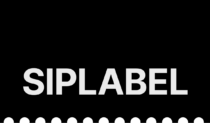BEST WINE DISTRIBUTION
Interview with
the BWD company
Introduction of BWD:
It was the year 2016 when two successful companies, Best Wines Slovakia and Emozioni, merged to form Best Wines Distribution. Both had distinct experiences in wine sales and distribution. The former boasted an exceptional range of wines, while the latter had a fiery passion for sales. As it later turned out, this merger proved highly beneficial. Exclusive wines and a strong customer base quickly attracted adept sommeliers, wine enthusiasts, and traders. We expanded towards the east, where in Košice, we joined forces with a local distributor, giving rise to Felix Wines Distribution.
To the west, we ventured beyond borders and settled in Prague, under the new brand Best Wines Distribution CZ. Our journey didn't stop there; we launched sales through an e-shop and made the B2B ordering system accessible. Our offering includes over 2500 types of wines from various winemaking regions worldwide, featuring brands like Miroslav Fondrk, Skovajsa, Tenuta San Guido, Gaja, Achaval Ferrer, Botega Chacra, Billecart Salmon, Philipponnat, and many more. Over 8 years, we've learned to share trends from different countries and regions. Regardless of our location, we place great emphasis on customer service, wine list analysis, employee training, and motivating clients to work with us.
How do you evaluate the wine distribution process?
We evaluate the wine distribution process positively because we see a growing interest in quality wines from customers and an expanding market offering. Also, customers are increasingly informed about different types of wines and their preferences, allowing us to better tailor our offerings.
What are your prospects for the future of winemaking?
Looking ahead, we see winemaking and wine-related work as a growing and dynamic market. We observe increased demand for organic and bio wines, as well as exotic and unconventional varieties. Consumers' awareness of the origin and production of wines is also rising, leading to increased demand for authentic and local products.
The growing interest in travel and gastronomy also opens new opportunities for winemakers. Wine tourism is becoming a popular trend, with consumers seeking experiential visits to wineries and wine tastings directly at their source.
Given these prospects, we believe that the future of winemaking will be based on innovation, sustainability, and personal experiences, bringing new opportunities but also challenges for winemakers and distributors.
How do you assess innovations in winemaking?
Innovations in winemaking are essential for maintaining competitiveness and improving quality. New technologies and practices in vinification and grape growing can lead to more pronounced and interesting flavor profiles in wines. We also observe a growing trend towards sustainability and ecological production.
What impact does digitalization have on the wine industry?
Digitalization has a revolutionary impact on the wine industry. Online sales and marketing open up new possibilities for winemakers to increase visibility and reach customers, which can lead to expanding customer bases and increased sales. The use of inventory management systems and data analytics enables winemakers to efficiently manage their stocks and predict demand, improving their ability to respond to market needs and minimize waste. Another advantage of digitalization is the possibility of personal interaction with customers through social media and online communication, helping to build a strong brand and customer loyalty.
Utilizing QR codes on wine bottles
QR codes on wine bottles can provide customers with additional product information, such as the wine's history, winery information, nutritional facts, competition victories, and food pairing recommendations. This increases customer engagement and interest in wine, which can positively impact sales.
Do you need a help with digitalization your wine labels?
We are here to help you. Contact us: [email protected] or right here.

